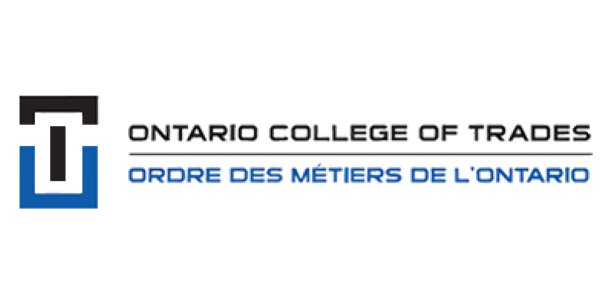The Ontario government has decided to transfer key functions of the Ontario College of Trades (OCOT) to the Ministry of Labour (MOL) from the Ministry of Training, Colleges and Universities (MTCU).
It’s a policy shift that was not hinted at in the November 2015 Tony Dean review report on OCOT nor publicized broadly in advance to stakeholders such as the Ontario General Contractors Association (OGCA).
An emailed memo signed jointly by MOL acting deputy minister Sophie Dennis and MTCU deputy minister Sheldon Levy dated May 9 described the changes to government officials and industry stakeholders.
"As the province moves forward with Mr. Dean’s recommendations, MOL has formally assumed responsibility for the College’s regulatory and administrative oversight," the memo indicates.
"This will allow MOL to directly apply its expertise to complex labour matters, including the role the Ontario Labour Relations Board will play with regards to enforcement activities.
"Responsibility for apprenticeship remains with MTCU as part of its mandate to support the development of a diverse and skilled workforce that meets the needs of Ontario’s economy."
The changes are effective immediately.
"It caught us totally off guard," commented David Frame, director of government relations with the OGCA. "It came in right out of the blue."
OCOT was created by legislation in 2009 with the vision it would be a self-regulating body, putting the trades on similar footing with teachers, doctors and nurses, with the core mandate to regulate and promote Ontario’s trades, as described in an advisory report written that year by advisor Kevin Whitaker. But not long after its establishment in 2013, acknowledges Minister of Labour Kevin Flynn, it became clear that there were issues related to the trades’ scope of practice, and that in particular the enforcement of the scopes of practice was not a good fit within the MTCU.
"I don’t think we got it wrong as much as we followed the best advice at the time," said Flynn. "I really believe that people have just come to the realization that as a result of taking a look at it through the Dean recommendations, there is a better way of doing it. Tony (Dean) didn’t address the issue, but as we were addressing his issues, it became evident that there was a better reporting structure to put in place here.
"And it is simply that, I don’t want people to overstate the importance of this move. We still have full confidence in the College, we still have excellent people, to take a leadership role in that regard, and we want them to stay."
Dean was appointed by the provincial government in October 2014 to review several aspects of OCOT’s operations. Among the Dean report’s recommendations published 13 months later was a call to develop "an enforcement and compliance committee and appeal process to resolve potential conflicts earlier, as well as ensure enforcement activities are consistently carried out with safety and the public interest in mind."
"They say they are implementing Dean but there is clearly a different focus on it than Dean had given it," said Frame, commenting on the Levy-Dennis memo.
Asked to comment, Dean said he was busy with business in another province and that Ontario provincial officials could offer comment.
"I think it probably complements the Dean report," said Flynn. "Most parties including ourselves have said the Dean report is a very well prepared document and we intend to implement it."
Flynn said he was intimately involved in the early stages of getting the College off the ground and there was lots of discussion on how enforcement should be undertaken.
The Dean report highlighted dissatisfaction among stakeholders regarding how OCOT enforcement decisions and appeals of those decisions were made, said Flynn.
"There was satisfaction from some," said Flynn. "Some others felt the College came in in a pretty strong-handed way, that boiled down to a dispute over what happens if there is an appeal.
"Somebody shows up on site, says, you are doing something you shouldn’t be doing, here’s a ticket. And someone says, I don’t agree with you, I think I am doing exactly what I should be doing. I want to appeal that.
"There was a sense that the appeal didn’t take into account the realities of what happens within organized labour, the realities of the Labour Relations Board, the ongoing discussion that takes place around scopes of practice."
The change in responsibilities within ministries was accomplished with an order in council, Flynn said.
"So the apprentice portion is staying behind with the Ministry of College, Training and Universities, as a reporting structure, but a lot of it came down to scopes of practice, things like enforcement, we enforce those types of things, it’s much more in the bailiwick of the Ministry of Labour," said Flynn.
"And it was felt that a reporting structure that took that into account, where there was some resident expertise already, may be the best way to go."
Regarding consultation of the shift of responsibilities within ministries, Flynn said, "There has been ongoing discussion around the College of Trades for a number of months, and as I say the vast majority (of people consulted), all but two or three of them, agree that this is the way to go."




Recent Comments
comments for this post are closed